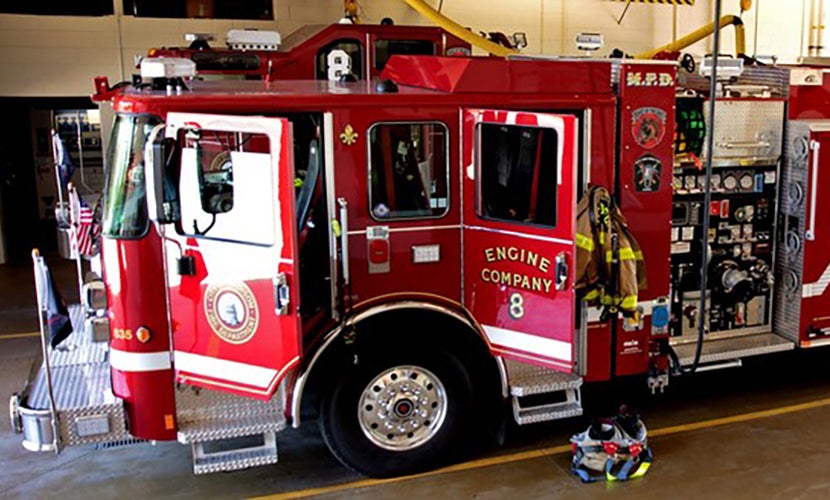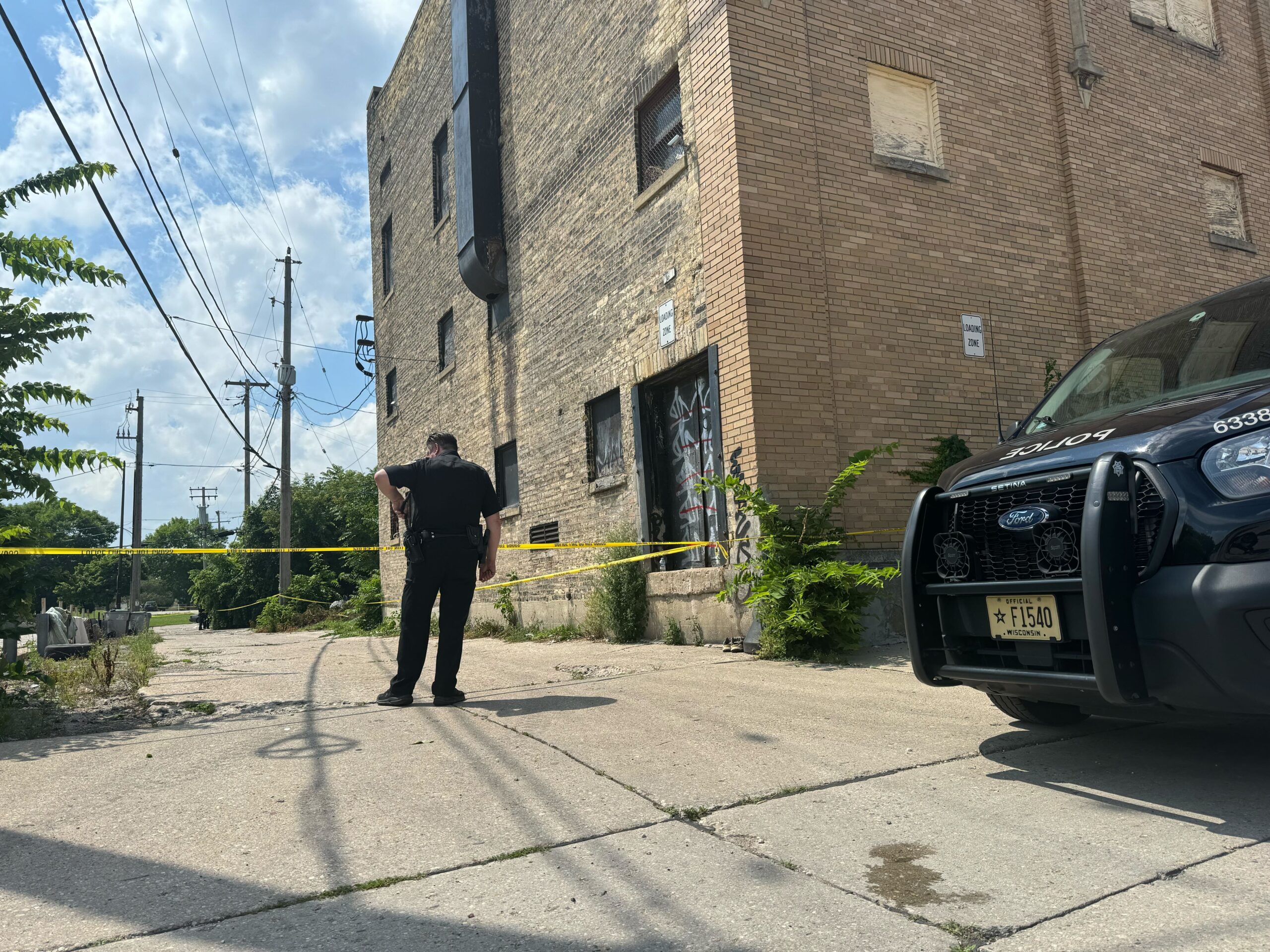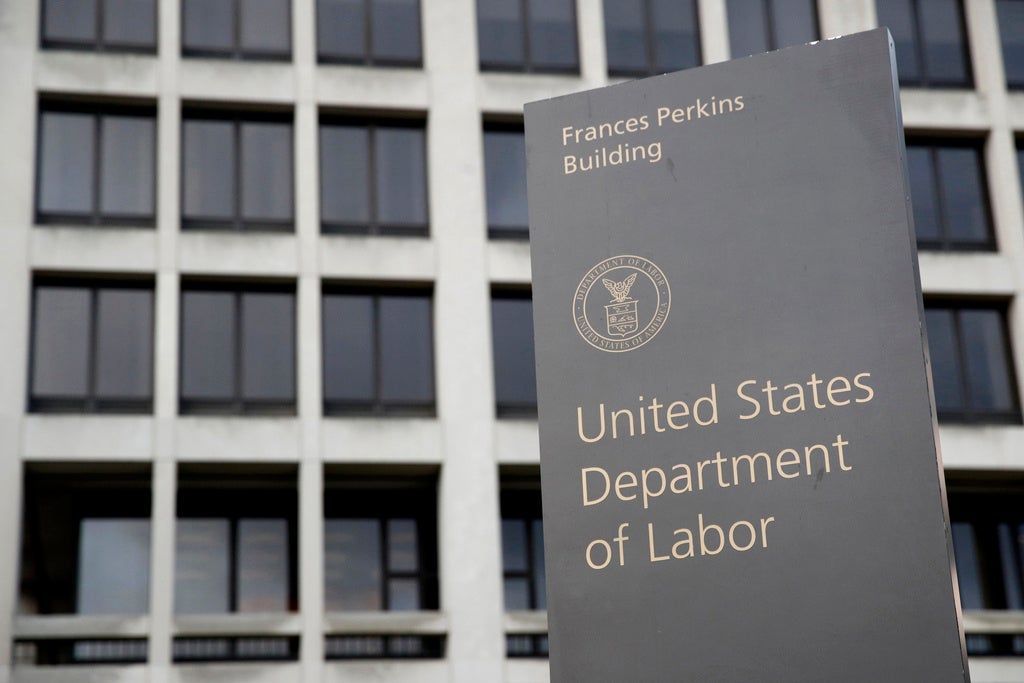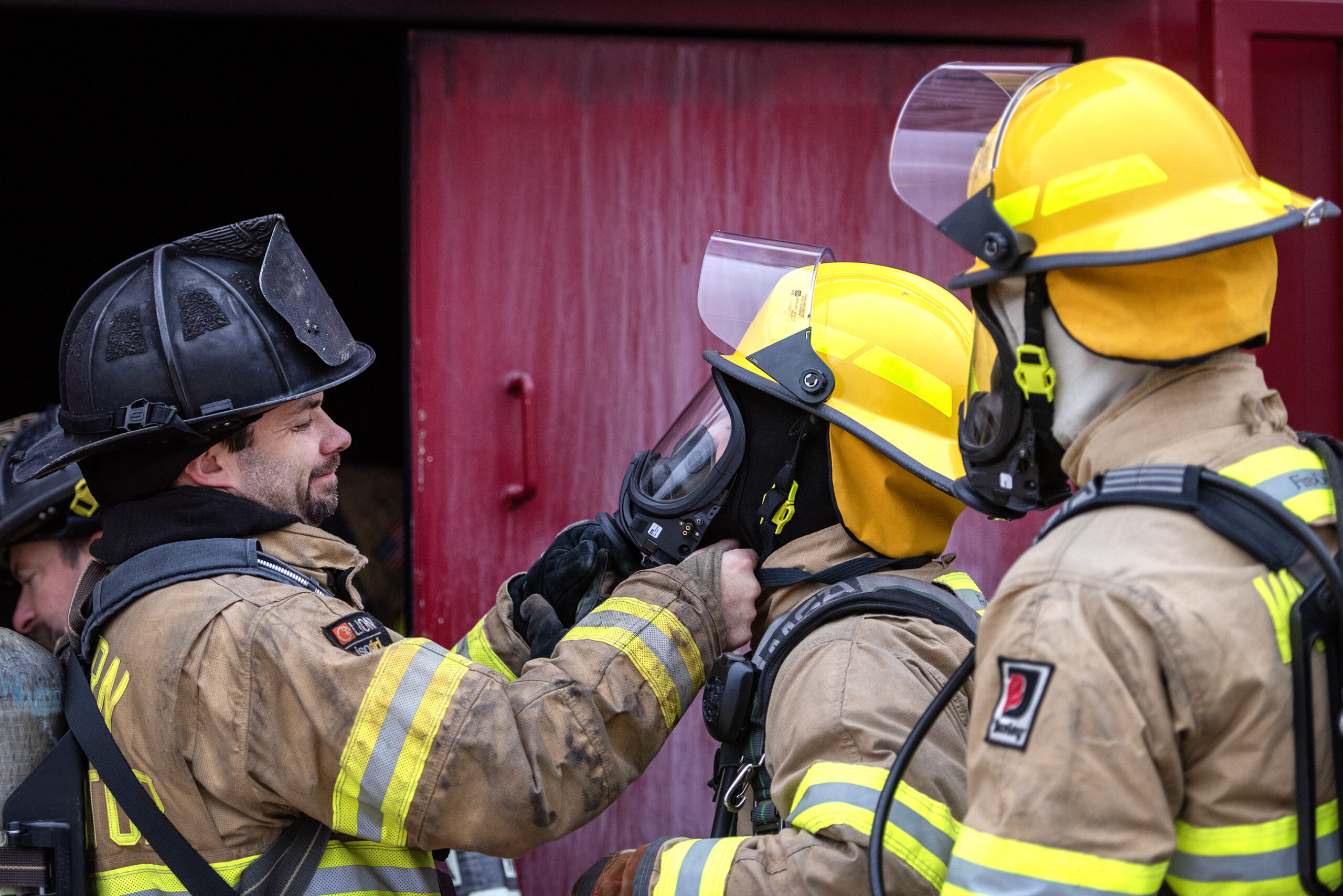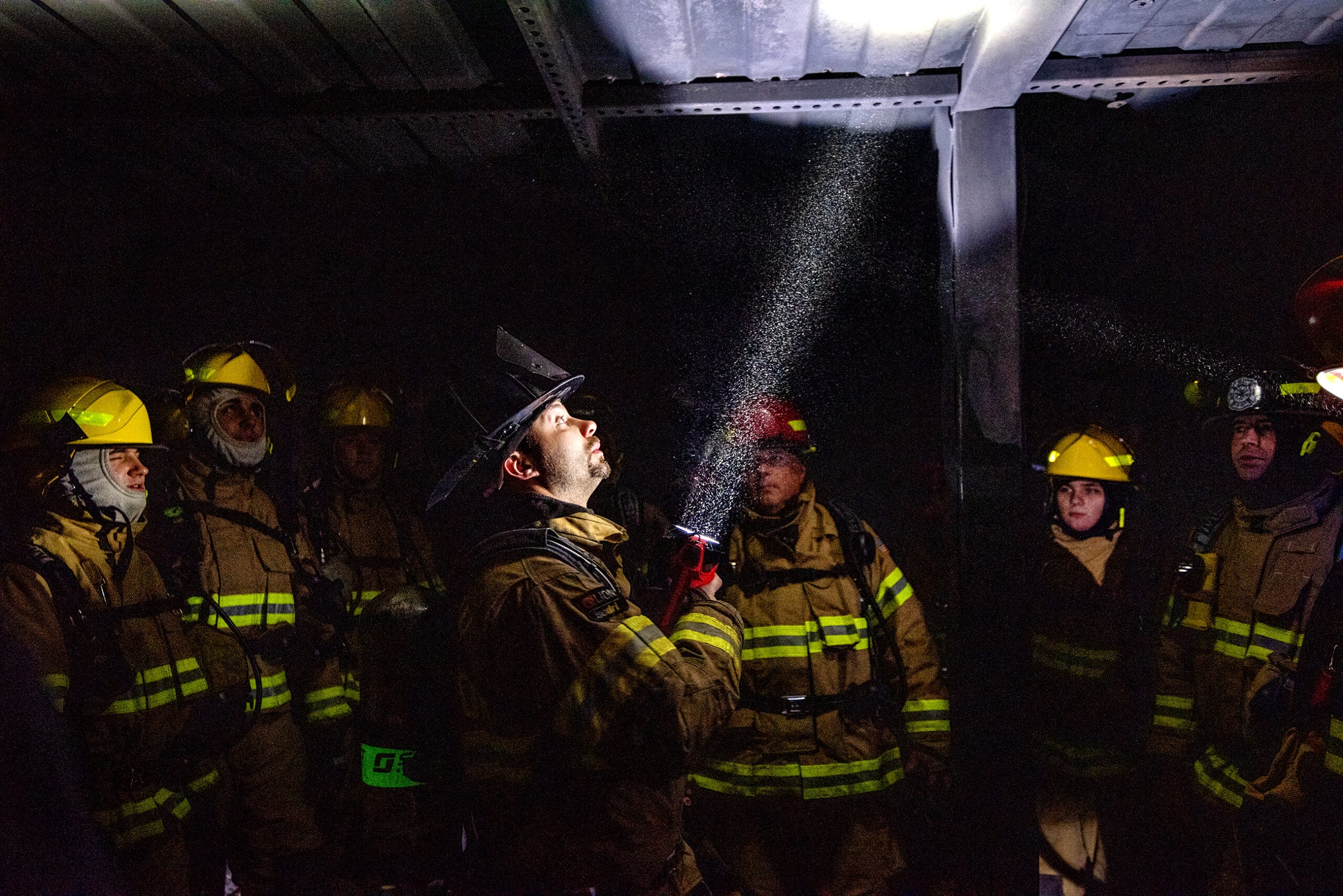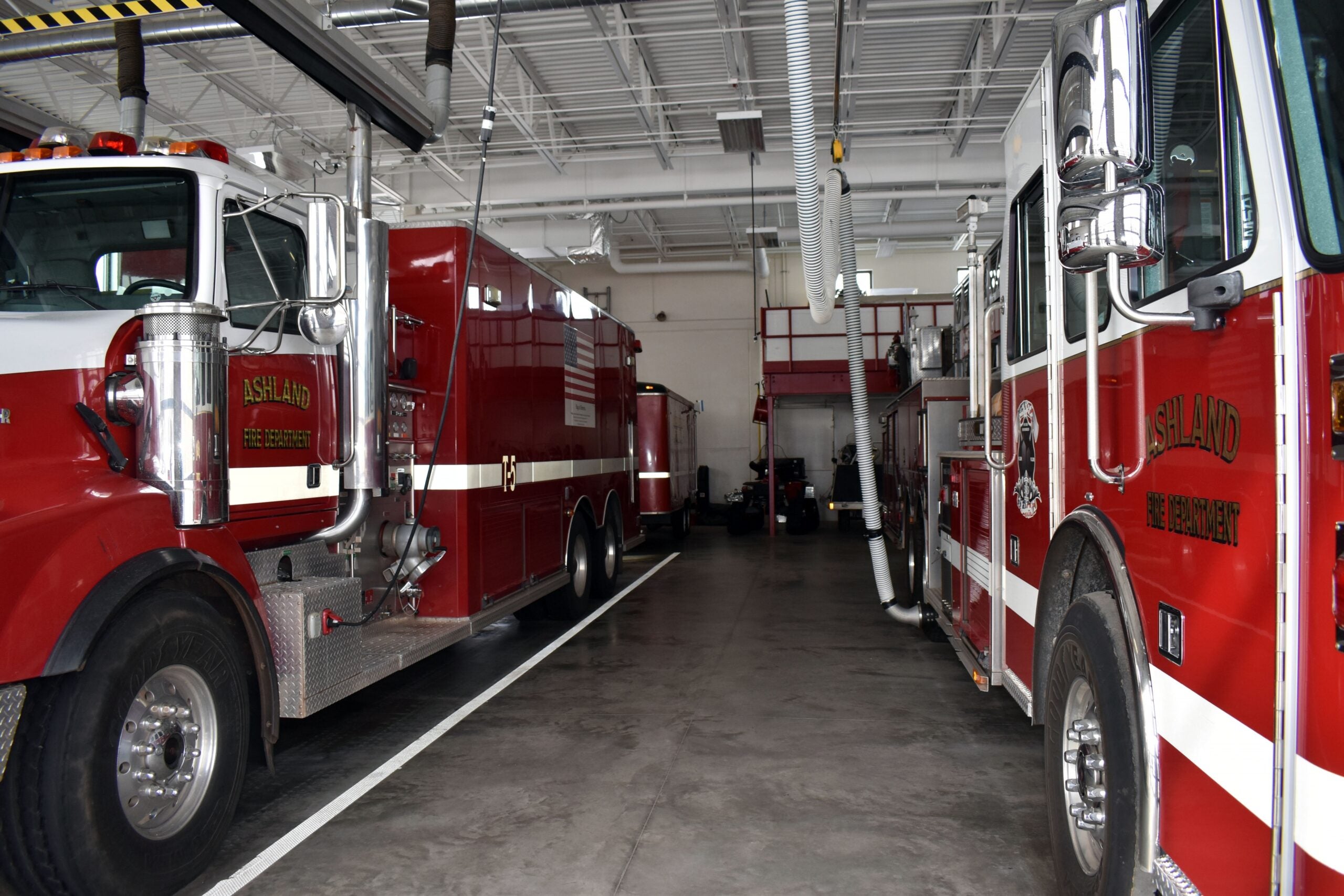Emmanuel Mielke was nervous when he started his first day as a firefighter in February at a station in downtown Madison.
But he had a head start. Mielke already met some of his colleagues when they were his instructors at the NextGen Responders Academy, an emergency medical responder and fire training certification program for high schoolers.
His first day also marked a first for the city fire department. Mielke was the first candidate they hired from the NextGen program, which launched in 2017 with the hope to draw more young people into the fire service.
Stay informed on the latest news
Sign up for WPR’s email newsletter.
“It’s a blessing. It’s not very common for young people to get into the fire service and have a full career going at the age of 21,” Mielke said, adding that many volunteer or work part-time at stations.
High school students can enroll in NextGen’s free classes at their local tech college. Students in the program can earn a state credential called Firefighter I, Firefighter II and Emergency Medical Responder, a national credential focused on pre-hospital care. It’s available to high school students in Dane, Sauk and Marquette Counties, with plans to expand statewide.
When Mielke graduated from high school, he interned and lived at the Fitchburg Fire Department for two and a half years while he earned his associate degree in fire science at MATC.
He moved onto paramedic school. And this past January, his hard work paid off — the Madison Fire Department offered him a job.
His success is part of a push to attract more firefighters in Wisconsin, as some say interest in the profession is waning.
Chad Powell, an apparatus engineer with the Madison Fire Department, is one of four NextGen founders. He said employment trends show that “applications are down tremendously.”
“We’re losing a whole generation of people. We got to do something about it. And it’s going to have a negative impact on our public safety if we don’t,” he said.
While big city fire departments are getting fewer applicants than in the past, the problem is more pronounced in rural areas.
Cassville Fire Chief Ron Hampton sits on the Board of Wisconsin State Firefighters Association, which represents about 10,000 members in the state, most of whom are volunteers.
“I think our biggest thing in rural America is we don’t have our population anymore. The workforce is leaving, so all we have left is the smaller number of volunteer youth,” he said.
Like many other high school seniors, Mielke contemplated his future after graduation. He wasn’t sure college was the right fit.
On his mother’s advice, he enrolled in NextGen and graduated from the program in 2019. Students participate in team-building activities, engage in confined space drills, climb ladders, learn about hose movement and how to handle equipment, among other skills.
It wasn’t long into the program when he realized how much he enjoyed the work. He said it was the “incredible” instructors that motivated him to pursue the field.
“They want to see people succeed,” Mielke said. “So let’s set people up with the right resources and help lead them to success. And help them become good firefighters.”
One instructor, Adam Perez, became a mentor and told Mielke, “I just want to let you know this life could be yours. Somebody’s gotta come here and replace us someday, and it could be you.”
Milwaukee has a similar program to draw young firefighters. The Junior Fire Institute, or JFI, offers mentorship and hands-on training to students as young as 14 years old. JFI also hosts an annual retreat for students to stay overnight and get a glimpse of life as a firefighter.
“Even if somebody doesn’t become a firefighter, they truly get a lot out of it as far as what pride and respect is and teamwork,” said Eric Daun, president of the Local 215 Milwaukee Professional Firefighters Association.
While JFI is voluntary, Daun said many participants later join the Fire Cadet program, which takes 27 applicants per class.
“It’s basically a two-year internship to get a job at the fire department,” Daun said.
Powell of Madison said firefighting is a fulfilling career, and he hopes NextGen will ultimately serve as a scholarship program for students.
“For me personally, the fire service saved my life. There’s just no question about it. I had a purpose, and I had something to do,” Powell said.
Nearly a year into the job, Mielke still gets the jitters. But if all goes well, he said, this is just the beginning.
“This will be the life for the next 30-some years. It’ll be a long road, but many say it goes by fast,” he said.
Wisconsin Public Radio, © Copyright 2025, Board of Regents of the University of Wisconsin System and Wisconsin Educational Communications Board.
